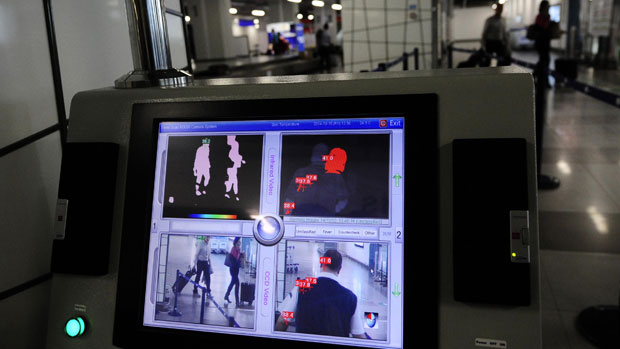
Dubai, Abu Dhabi: The United Arab Emirates remains free of Ebola — but if it does strike here, authorities say they are ready.
Health sector officials here are not taking the global health crisis lightly, tropical disease experts told Gulf News, noting that a raft of emergency protocols are in place to swiftly isolate and contain any possible cases.
More than 4,000 people have died from the disease in Liberia, Sierra Leone and Guinea, according to figures released by the World Health Organisation (WHO) — and it is calling the Ebola outbreak as “the most severe, acute health emergency seen in modern times”.
Medical experts told Gulf News on Monday that should the worst fears of having a Ebola patient in transit through UAE airports become a reality, the entire UAE infectious diseases machinery is geared to swing into action.
Infectious diseases experts in Dubai are confident that the country is equipped to deal with any stray case that may present itself at the airport.
A strict adherence to procedures will ensure a complete isolation of the patient and stem any spread of the disease.
“Vigilance from various sectors, public and private, is important to face the challenges that Ebola — or similar disease — presents,” a Dubai-based infectious disease specialist told Gulf News, speaking on condition of anonymity.
“There are lessons that we can learn from other countries, and the government has prepared for similar types of outbreaks in the past, and is prepared,” he said.
Many hospitals across the UAE are equipped with negative vacuum chambers to isolate patients with airborne diseases such as anthrax, chicken pox and tuberculosis.
In Dubai, all hospitals with these chambers have been sent a special notice by Dubai Health Authority that should a suspected Ebola patient turn up, he or she has to be isolated in the vacuum chamber — and DHA needs to be informed immediately of the development.
The Canadian Specialist Hospital has three such chambers where the air pressure is maintained at –2.5 Pascal, lower than the normal atmosphere. Since the air pressure outside the chamber is higher, it helps vent and infected air into a specialised filtering and isolation system.
Hospital sources told Gulf News that this kind of chamber is not a treatment room but rather a precautionary method to contain airborne diseases from spreading. Ebola is primarily spread through fluids and air-borne contraction is rare.
Airports both in Dubai and Abu Dhabi, meanwhile, are not actively screening passengers — a precaution that is in place in airports in the US, Canada and those with a high number of transiting passengers from west Africa.
At Dubai International Airport, a spokesperson said, “We take our instructions from health authorities and regulators, who are monitoring the developments of the Ebola outbreak. The authorities, in turn, follow the guidelines of the World Health Organisation. At this time, we are not conducting tests for the disease.”
Abu Dhabi Airport officials said they, too, are working closely with health authorities.
“Abu Dhabi International Airport has procedures and protocols in place as per the guidelines of Health Authority Abu Dhabi (HAAD) and we are closely working with them to monitor developments and activate the necessary protocols. At the moment all screening and operations remain normal.”
Residents from African countries, meanwhile, are being told to check with some countries where they plan to travel to ensure smooth travel.
The Nigerian Ministry of Foreign Affairs issued a travel advisory, telling its nationals that many countries have closed their borders, repatriating passengers from Ebola-infected countries (including Nigeria) or have mandated screening at entry points.
“These measures are clearly contrary to the guidelines issued by the World Health Organisation (WHO) and are therefore not acceptable. Against this practice, the ministry has strongly protested the treatment being meted out to Nigerians in some countries,” the ministry’s travel advisory reads.
“In order to avoid any embarrassment, Nigerians are hereby advised to check on the websites of the embassies and consulates of the countries they are visiting, for updated travel information before embarking on their journeys.”











